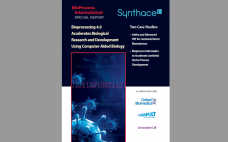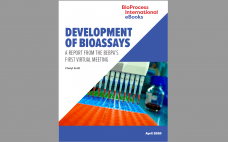Biopharmaceutical researchers are focusing on novel platforms to quickly develop bispecific antibody (BsAb) therapies for treating complex diseases such as cancer. BsAb therapies offer several advantages because they are designed to bind two unique epitopes. In this report, Bill Lundberg, president and chief executive officer at Merus, describes his company’s efficient approach to developing BsAbs using “common light chain” technology and other proprietary strategies. Lundberg also addresses the company’s approach to typical BsAb development and manufacturing challenges. Fill out the…
Wednesday, April 29, 2020 Daily Archives
Bioprocessing 4.0 Accelerates Biological Research and Development Using Computer-Aided Biology
Computer-aided biology describes a growing ecosystem of tools that augment human capabilities in the laboratory. In this report we give two case study examples of how computer-aided biology has transformed industrial gene therapy bioprocessing. Read on to discover how Synthace’s Antha cloud-based software platform has enabled industrial collaborators Oxford Biomedica and the Cell and Gene Therapy Catapult to harness the power of Bioprocessing 4.0 by: incorporating new process analytical technologies (PAT), such as Raman Spectroscopy, into their unit operations automating…
eBook: Development of Bioassays — A Report from the BEBPA’s First Virtual Meeting
Bioassay development is one of the most challenging aspects of biotherapeutic development. These tests are vital to providing an accurate picture of potency, stability, and biological activity. But bioassay development can be complex and expensive — and often test results can vary. Cell-based bioassays especially lack robustness. In March 2020, the Biopharmaceutical Emerging Best Practices Association (BEBPA) presented its annual bioassay conference in virtual format. Here, BPI’s senior technical editor reports on the conference’s discussions. Read on to learn more…



